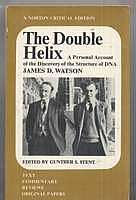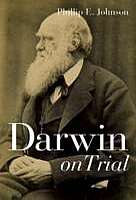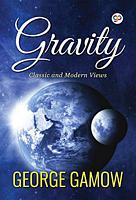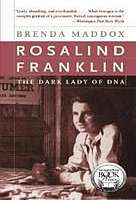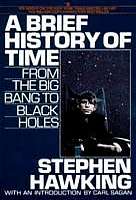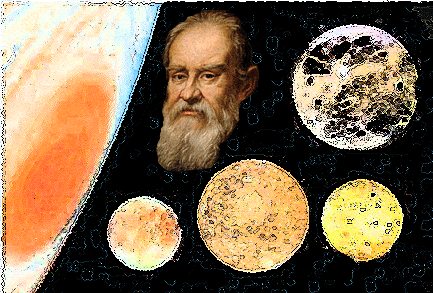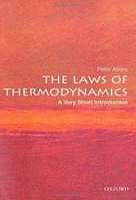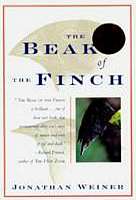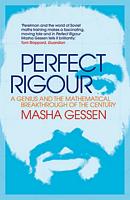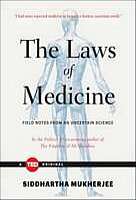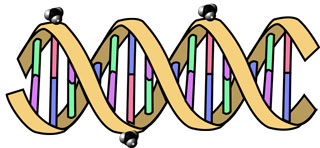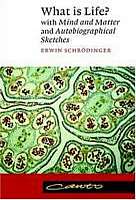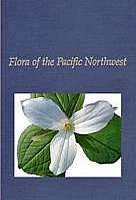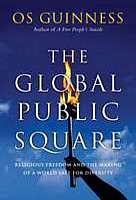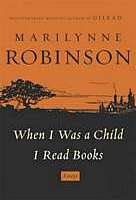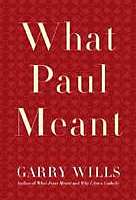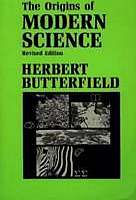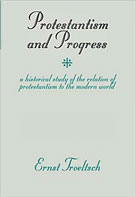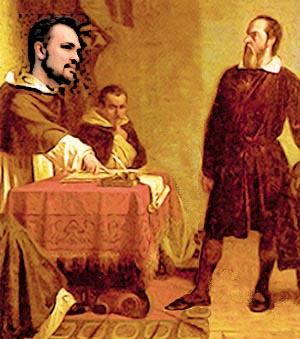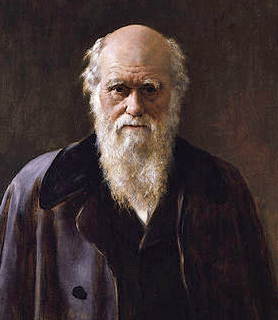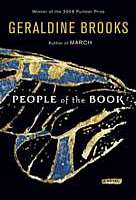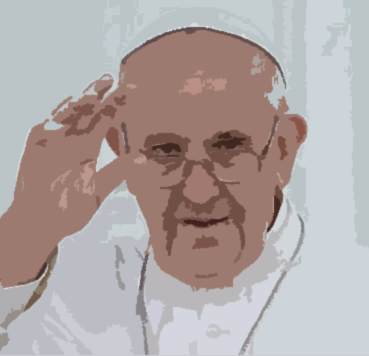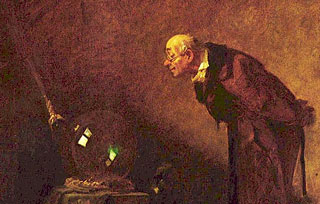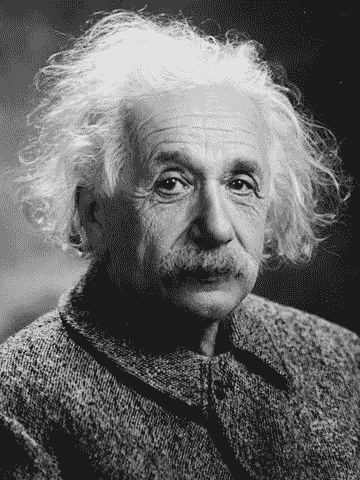 -ologies
-ologies
Honest Jim
Watson's superb account of his and Crick's discovery of the structure of DNA. It is the rarest of books: a scientific page-turner, with suspense, strong personalities and a child-like narrator.
Wide of the Mark
Johnson's book provides a perspective on creationist thinking and argumentation. It demonstrates that attorneys are trained to advocate, to argue, not to look hard for the best understanding.
Gamow on Gravity
Those genuinely curious about the intellectual story of gravity will find Gamow a superb teacher, one adept at explaining physics to the uninitiated,and to the newly initiated, high school and college students, most effectively to an audience comfortable with algebra and geometry.
The Dark Lady of DNA
Rosalind Franklin made critical contributions to the discovery of DNA's structure, yet was not awarded the Nobel. Why not? Rank villainy? Maddox's masterful recounting lays out the complex tale.
Short and sweet
A Brief History of Time is the single best popularized science book I have read to date on the subject of modern physics. It has been held that kind of regard since it has been published in 1988, but I resisted reading it, because I had formed the opinion that modern physics, buried so deeply in mathematical models divorced from everyday experience, was simply too difficult to convey to the non-practitioner, that vast group including myself.
The moons of Jupiter
The fascination of astronomy for me, beyond the beauty of the night sky, beyond the immense imponderables of a vast and ancient universe, is that our understanding of the universe has been gleaned by observing a few points of light in the sky. One illustration of this can be found in the history of our knowledge of the moons of Jupiter.Entropy is so simple
Peter Atkins, a bona fide chemistry professor, takes a shot at summarizing the Laws of Thermodynamics, particularly the 2nd Law, for the million. He claims that when he is done explaining, you will understand how all change of any kind occurs, why death itself must come, even how the unfolding of the very thoughts you are employing to read his book is a consequence of the 2nd Law. Alas his explanations fall short of such a lofty goal.
Pandora has many boxes
 The ability to directly and much more easily modify the genome of any living organism, via somatic or germline modification, has become a reality via CRISPR-Cas9 techniques. Chinese scientist He Jiankui recently claimed to have opened yet another of Pandora's seemingly endless set of boxes: Germline gene editing. Jennifer Doudna's recent book A Crack in Creation, a must-read, warns about premature application of CRISPR-Cas9.
The ability to directly and much more easily modify the genome of any living organism, via somatic or germline modification, has become a reality via CRISPR-Cas9 techniques. Chinese scientist He Jiankui recently claimed to have opened yet another of Pandora's seemingly endless set of boxes: Germline gene editing. Jennifer Doudna's recent book A Crack in Creation, a must-read, warns about premature application of CRISPR-Cas9.A Finch in Time
The Beak of the Finch follows a husband and wife scientific team, Peter and Rosemary Grant, in their studies of Darwin's finches on Daphne Major island in the Galapagos archipelago, looking for evidence of natural selection. They have spent twenty years observing the finch population for direct evidence of natural selection. They concluded from these observations that natural selection is occurring daily.
Too simply pure
The Poincaré conjecture, one of the great unsolved topological problems, was finally proven at the end of the 20th century by Grigoriy Perelman, a Russian mathematician of genius. Topology might be described as distilled geometry. The historian Masha Gessen, who grew up herself in the Russian mathematical culture, invites us into the Aspergian milieu of world-class geometers to tease out the tale.
Reforming progress
Calvinist philosophy professor Theodore Plantinga suggests that 'post-Enlightenment' Protestants, so as to act progressively or correctly in support of individual liberties, should embrace the Protestant faith, building their responses to the world on the foundation of Calvin and Luther, rather than embrace 'short-sighted' Enlightenment ideas. How does Plantinga justify his view that the societal direction of Western civilization can be improved by eschewing the Enlightenment influence and replacing it with the Reformational Christian outlook of the 16th century?
Apocalyptic politics
Donald Trump's latest international provocation, the decision to move the U.S. embassy in Israel to Jerusalem, marches Trump-backing evangelicals a step closer to their deeply held desire for the fulfillment of Biblical end-times prophecies. A recent CNN article by Diana Bass suggests that, for many evangelicals, Jerusalem is about prophecy, not politics. I would partially agree: It is about prophecy, but it is also explicitly about politics.
Are there Laws of Medicine?
Modern medicine began embracing scientific methods during the last couple of centuries, and in the past one hundred years this has produced an explosion of medical technologies that have aided physicians in significantly controlling some diseases and in particular, extending lives. Today in developed countries, many tests are available for diagnosis and many drugs are available for possible treatment. So why can't physicians today just run a comprehensive battery of tests for every sick patient and spit out a clear diagnosis, and with that, a clear prognosis and plan for a cure? Siddhartha Mukherjee proffers an answer via his Laws of Medicine.

Galaxy NGC 1300. Attrib: NASA, modified, PD-USGOV.
Evolution + Intelligent Design = 42
Are evolutionary biology, intelligent design and the existence of God compatible? A reasonable case can be made for it, particularly if one relaxes their culture warrior muscles for a moment, and considers the argument that: science offers little tangible evidence of abiogenesis, the spontaneous creation of life from inanimate material, leaving room for God as the creator of the initial life forms; that God could just as well have created the remainder of life via the slow mechanism of biological evolution. This is not a new argument, and finds a much larger audience than the shouters like to acknowledge.
Has Lamarckism been revived?
Epigenetic studies are burgeoning; these genetic mechanisms that are external to direct DNA/RNA encoding and expression are being intensively studied, particularly how environmental factors can stimulate methylation and acetylation of bases of DNA or histone proteins, which then affects the expression of specific gene activity. Is epigenetic modification heritable, and if so, does this represent a revival of Lamarckism?
Large Scale Genomics in Beijing
Beijing Genomics Institute, BGI, situated in Shenzhen, on the border between Guangdong and Hong Kong, claims the title of the world's biggest Genomics institute. Their president Jian Wang said, 'For the last 500 years, you (the West) have been leading the way with innovation. We are no longer interested in following.' The scale of their sequencing capability is large, as are their goals: to crack hunger, illness, evolution - and the genetics of human intelligence.Evolutionary zinger: Bats, moths and mites
When Fred Rickson taught his section of General Biology at Oregon State, I made sure to attend all of his lectures, as he opened them with his evolutionary zingers, hoping that his students would would be enticed to be more prompt than usual. My favorite was his zinger about the three-way symbiotic relationship between a bat, a moth, and a mite.Evolutionary zinger: Ants and acacia trees
I treasure the science education I obtained at Oregon State University. One standout class was General Biology, a portion of which was taught by professor Fred Rickson. He did not like people slipping in late, so he gave short teasers promptly at the start of the hour, which he entitled evolutionary zingers, hoping that his students would enjoy the stories sufficiently to show up on time. It definitely worked for me. I was not in the habit of attending a lot of lectures, but the intricate stories of complex life told by professor Rickson were as attractive to me as nectar "fountains" are to acacia ants, the subject of one of his zingers.The physical sublety of life
I recently re-read portions Erwin Schroedinger's amazing little book What is Life?, which was a post-war stimulus for a number of physicists to switch from physics to biology and look hard for a physical understanding of living organisms.
Of ovules and ovaries
Flora of the Pacific Northwest is an excellent dichotomous key of indigenous regional flora. It served as one of my texts for a college class in Systematic Botany, which I feared would be deathly dull, and so proved the lectures, but the laboratory unexpectedly turned out to be a rewarding journey exploring the world without and the world within.
Halting steps to soul freedom
Os Guinness' The Global Public Square oscillates between a Utopian call for a universal human rights and a sectarian application of those rights, as if the author was of two minds, wrestling with the views of Roger Williams and James Dobson.
Life, education, and life-long learning
We each are given a precious life and can choose to do with it what we will. We can act in our natural self-interest and seek safety, material wealth and pleasure, or we can act outside of our direct interests, enriching our lives through the consideration of others. Our lives are most meaningful and worthwhile when we love others. The elements of life to be savored most are those that are founded on the humble idea that we are all human beings who are worthy of consideration.The capacious heart of Marilynne Robinson
Every few odd years Marilynne Robinson has produced a book of essays, notably Absence of Mind and The Death of Adam. The latest arrival is When I was a Child I Read Books: Essays. The best of Robinson shines in these latest essays: In them she lays out her vision of the American Dream, celebrating the strengths of the American way of life, marked by its liberality (individual freedom), sense of community, and generosity, each informed by a non-sectarian respect for the soul.
Paul, simply
In What Paul Meant, Garry Wills translates the authentic Pauline letters himself, and combines a careful translation of the koiné Greek with modern scholarship to suggest that Paul, who is the modern intellectual's favorite whipping boy as the man who distorted Jesus' message, is in fact a faithful interpreter of the Jesus of the Gospels.
The Origins of Modern Science
Herbert Butterfield, in his book The Origins of Modern Science, tells the story of the development of modern science by focusing on the ideational changes in what is now referred to as science from the late Middle Ages until the advent of the French Revolution, with primary emphasis on the development of the modern understanding of motion. This is a brilliant choice, as it was the development of a robust physical and mathematical model of motion that allowed Newton to unite terrestrial and astronomical physics into a universal set of physical laws describing mechanics.
The origins of modern society
Ernst Troeltsch was a fin de siècle Protestant theologian who wrote Protestantism and Progress: A Historical Study of Protestantism and the Modern World. This work, along with his friend Max Weber's The Protestant Ethic and the Spirit of Capitalism, both written just before World War I, are reasoned historical treatments of the influence of Protestantism on the perceived and potential progress of Western society. They provide effective contrast to the often simplistic and one-sided efforts by Protestant Evangelicals to do the same, such as Francis Schaeffer's How Should We Then Live?
The many ways of misusing quantum physics
Doctor Moriarty, that is physicist Phil Moriarty, holds forth on the various ways of misapplying quantum mechanics, to philosophy, religion, and just about anything but the world of the atom for which it was constructed. He is charmingly cranky about such "Woo".
Is the selfish gene dead?
David Dobbs recently suggested that the 'selfish gene is one of the most successful science metaphors ever invented; unfortunately, it’s wrong.' He purports to uncover a scientific trend in genetics that trumps the understanding of the central role the gene plays in biological evolution. To parrot the author, unfortunately, he’s wrong.My favorite inquisitor
 Since all other than orthodox is heretical by definition, it is thereby 'Bad Religion.' Ross, a practicing Catholic, argues that Christianity is a highly paradoxical religion whose orthodox views provide a necessary and hard won synthetic narrative providing the one true way. The argument is not very compelling, particularly as it contains the usual demagogic description of American society as corrupted, long in decline, whose only salvation is embracing his orthodoxy. (Yawn ... the ancient clarion call of the entrenched and the reactionary.)
Since all other than orthodox is heretical by definition, it is thereby 'Bad Religion.' Ross, a practicing Catholic, argues that Christianity is a highly paradoxical religion whose orthodox views provide a necessary and hard won synthetic narrative providing the one true way. The argument is not very compelling, particularly as it contains the usual demagogic description of American society as corrupted, long in decline, whose only salvation is embracing his orthodoxy. (Yawn ... the ancient clarion call of the entrenched and the reactionary.)Darwin’s endless forms most beautiful
The final paragraph of Charles Darwin's epic Origin of Species is still a viable and beautiful summary of biological evolution. The last phrase reveals both the scientist and the poet:. . . from so simple a beginning endless forms most beautiful and most wonderful have been, and are being, evolved.
Convivencia is a state of mind
Geraldine Brook's historical novel, People of the Book, tells the fascinating and uplifting story of how people of different faiths created and protected a Jewish book of worship known as the Sarajevo Haggadah for over five hundred years, a period marked by much religious conflict.
To the power of love
Pope Francis, recently elected, has my attention and admiration. I must admit to having been uninterested in those men who have occupied the papacy during my lifetime; I am not a Catholic, nor particularly religious for that matter. But Francis seems different: He has humbly eschewed the pomp of the office, worries aloud and often about the poor, opens the door to all, emphasizes a loving attitude towards homosexuals (contrary to so many fundamentalists of various religions), openly questions the excesses of the marketplace, has recently taken steps to deal more honestly with the pedophilia issues within his Church, and emphasizes much more the mystery of God rather than the rigid confines of orthodoxy and doctrine.
In celebration of curiosity
I was asked once by someone close to me why I read the kinds of things I read, or why I would read some things more than once, when much of it didn't seem immediately useful. Upon some thought, I replied that I was simply curious, and that not everything of interest is necessarily or immediately of practical value.
To the Hebrew congregation in Newport Rhode Island
A remarkable and short exchange of letters between George Washington and Moses Seixas in 1790 beautifully illuminates the Constitution's 1st Amendment protections for religious freedom as intended by the founders, written as the states were still ratifying the proposed Bill of Rights.Fuzziness is all
Alongside Newton's powerful physical model of the universe came a growing belief that the universe in principle was deterministic, that the rules by which the universe behaved could be discovered and modeled, were repeatable, and could be in principle exactly or absolutely determined. Absolute determinism came under serious question with the advent of subatomic physics at the start of the 20th century, more or less collapsing in the face of problems insoluble with the physics of Newton and Maxwell, and only explicable by using the new quantum mechanics, which posits that natural phenomena could be modeled at the highest attainable precision only by using explicitly probabilistic models, that is, by building into the models a modicum of fuzziness.


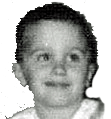 Star glows in the void, pin point in the firmament: quintessential!
Star glows in the void, pin point in the firmament: quintessential! READING
READING ARCHIVES
ARCHIVES CATEGORIES
CATEGORIES QUOTES
QUOTES